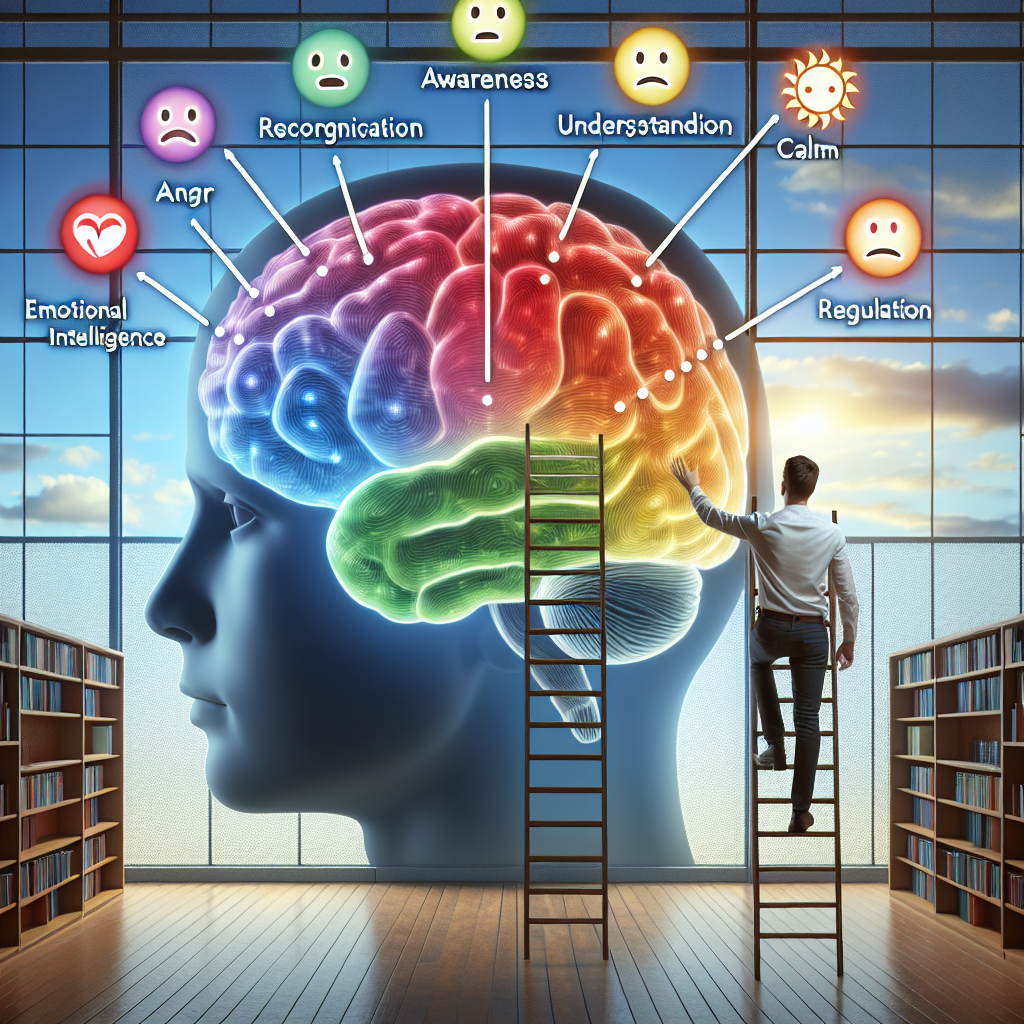Emotional intelligence is the ability to understand and manage one’s own emotions, as well as to recognize and empathize with the emotions of others. It plays a crucial role in our personal and professional lives, influencing our relationships, decision-making, and overall well-being. By improving our emotional intelligence, we can enhance our emotional awareness and develop healthier relationships, make better choices, and lead a more fulfilling life.
So, how can we improve our emotional intelligence and cultivate emotional awareness? In this article, we will explore practical tips and strategies to help you enhance your emotional intelligence and navigate the complexities of your emotions more effectively.
1. Practice self-awareness
Self-awareness is the foundation of emotional intelligence. It involves being in tune with your own emotions, thoughts, and behaviors. One way to enhance self-awareness is to take the time to reflect on your emotions and the underlying reasons for them. Keep a journal where you can record your thoughts and feelings, and identify patterns in your emotions. Pay attention to your body signals, such as tension in your muscles or a knot in your stomach, as they can provide valuable insights into your emotional state.
2. Develop empathy
Empathy is the ability to understand and share the feelings of others. By developing empathy, you can strengthen your emotional connections with people and improve your relationships. Practice active listening and try to see things from the perspective of others. Show empathy by acknowledging and validating their emotions, and offer support and comfort when needed. Empathy can help you build trust and rapport with others, as well as foster a sense of belonging and connection.
3. Manage stress effectively
Stress can undermine your emotional intelligence and hinder your ability to make rational decisions. To improve your emotional awareness, it is crucial to manage stress effectively. Practice stress-reduction techniques, such as deep breathing, meditation, or yoga, to calm your mind and body. Engage in activities that promote relaxation and self-care, such as taking a walk in nature, spending time with loved ones, or pursuing a hobby you enjoy. By managing stress effectively, you can enhance your emotional resilience and cope with challenging situations more effectively.
4. Cultivate emotional regulation
Emotional regulation involves managing and expressing your emotions in a healthy and adaptive way. To improve your emotional intelligence, practice regulating your emotions by recognizing and acknowledging them without judgment. Validate your emotions and explore healthier ways to express them, such as talking to a trusted friend or therapist, engaging in creative outlets, or practicing mindfulness. By cultivating emotional regulation, you can enhance your emotional awareness and cope with difficult emotions more effectively.
5. Enhance your social skills
Social skills are essential for building and maintaining relationships, as well as navigating social situations effectively. To improve your emotional intelligence, focus on enhancing your social skills by practicing effective communication, teamwork, and conflict resolution. Be mindful of your body language, tone of voice, and facial expressions, as they can convey important cues about your emotions. Listen actively to others, show empathy, and practice assertiveness in expressing your own needs and boundaries. By enhancing your social skills, you can improve your emotional awareness and foster positive relationships with others.
FAQs:
Q: What are the benefits of improving emotional intelligence?
A: Improving emotional intelligence can lead to better relationships, enhanced mental health, increased self-awareness, improved decision-making, and overall well-being. It can help you navigate social situations more effectively, communicate more clearly, and manage your emotions in a healthy way.
Q: Is it possible to improve emotional intelligence?
A: Yes, emotional intelligence is a skill that can be developed and enhanced over time. By practicing self-awareness, empathy, stress management, emotional regulation, and social skills, you can improve your emotional intelligence and cultivate emotional awareness.
Q: How can I assess my emotional intelligence?
A: There are various assessments and tools available to help you assess your emotional intelligence, such as the Emotional Intelligence Appraisal or the Mayer-Salovey-Caruso Emotional Intelligence Test. You can also self-assess your emotional intelligence by reflecting on your emotions, thoughts, and behaviors in different situations.
In conclusion, improving your emotional intelligence and cultivating emotional awareness can enhance your personal and professional life in many ways. By practicing self-awareness, empathy, stress management, emotional regulation, and social skills, you can enhance your emotional intelligence and navigate the complexities of your emotions more effectively. Remember that emotional intelligence is a skill that can be developed and improved over time, so be patient and persistent in your efforts to enhance your emotional awareness.




Leave A Comment